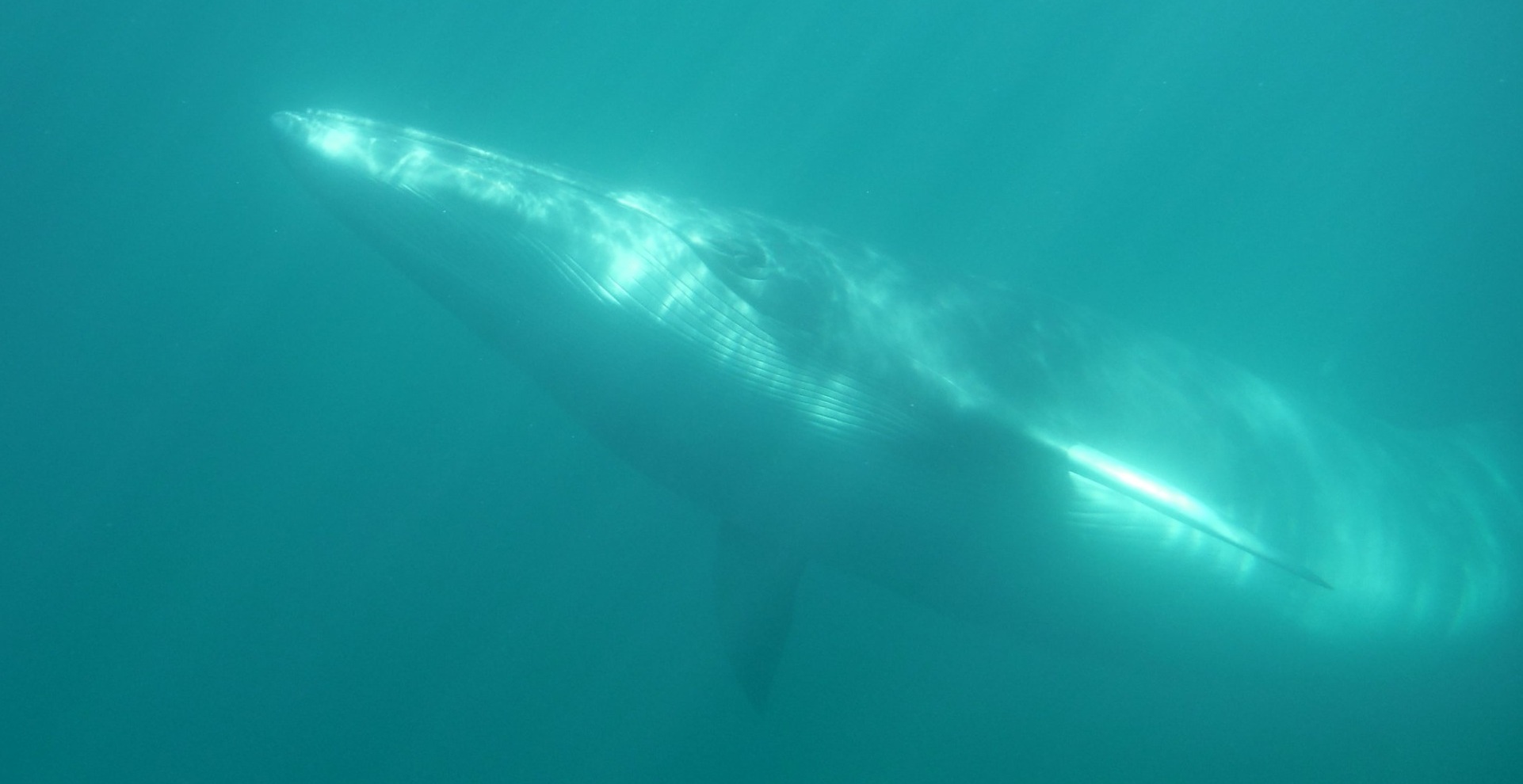Public consultation opens on Marine Protected Areas for whales, dolphins and sharks
Today the Scottish Government has opened a public consultation seeking views on proposals for four new Marine Protected Areas (MPAs). The proposals include sites to protect minke whale, basking shark, Risso’s dolphin and sand eel, contributing to a national network of MPAs that will help protect our amazing seas.
HWDT has engaged with the MPA process over many years, providing scientific evidence to support site selection, and we are encouraged to see these proposed sites progressing to a public consultation.
Our dedicated survey work, carried out by volunteer citizen scientists every year over the last two decades, has helped to identify the proposed Sea of the Hebrides MPA as an important feeding area for minke whales and basking sharks on a national scale.
Mobile species, such as whales and sharks, are particularly challenging to protect as they don’t often stay in one place. It is important therefore that MPAs for cetaceans are not only places where species are present, but areas on which these species rely for essential functions such as feeding, breeding and socialising, known as ‘life history stages’.
In the Sea of the Hebrides HWDT citizen scientists have undertaken long-term monitoring from our research vessel Silurian, to understand the distribution of these iconic species. Our photo-identification research has also documented individual whales returning to the area every year for over a decade, one of these whales is so well known it even has a Facebook page and a song written about it!
Our Director, Alison Lomax, welcomes the news:
“HWDT have been researching minke whales and basking sharks, alongside other species, in the Sea of the Hebrides for over two decades. A well-managed and monitored MPA in the west of Scotland has a key role to play in the conservation of these much loved whales and sharks.”
HWDT supports the proposed boundary of the Sea of the Hebrides MPA and will be responding to the consultation. Today’s proposals however are just the first step; a further process will be required to implement management measures within the areas proposed. It is important that regional protection is supplemented by wider measures at a national and international scale, such as the reduction of underwater noise pollution.
We hope that all stakeholders will take the opportunity to respond to this consultation to voice their views, so that the best possible outcome can be reached for whales, dolphins, sharks and for coastal communities.
The full consultation papers can be accessed here and responses can be made until 30 August 2019 online here. Scottish Natural Heritage and Marine Scotland will also be holding consultation drop in sessions, dates and locations can be found here.



